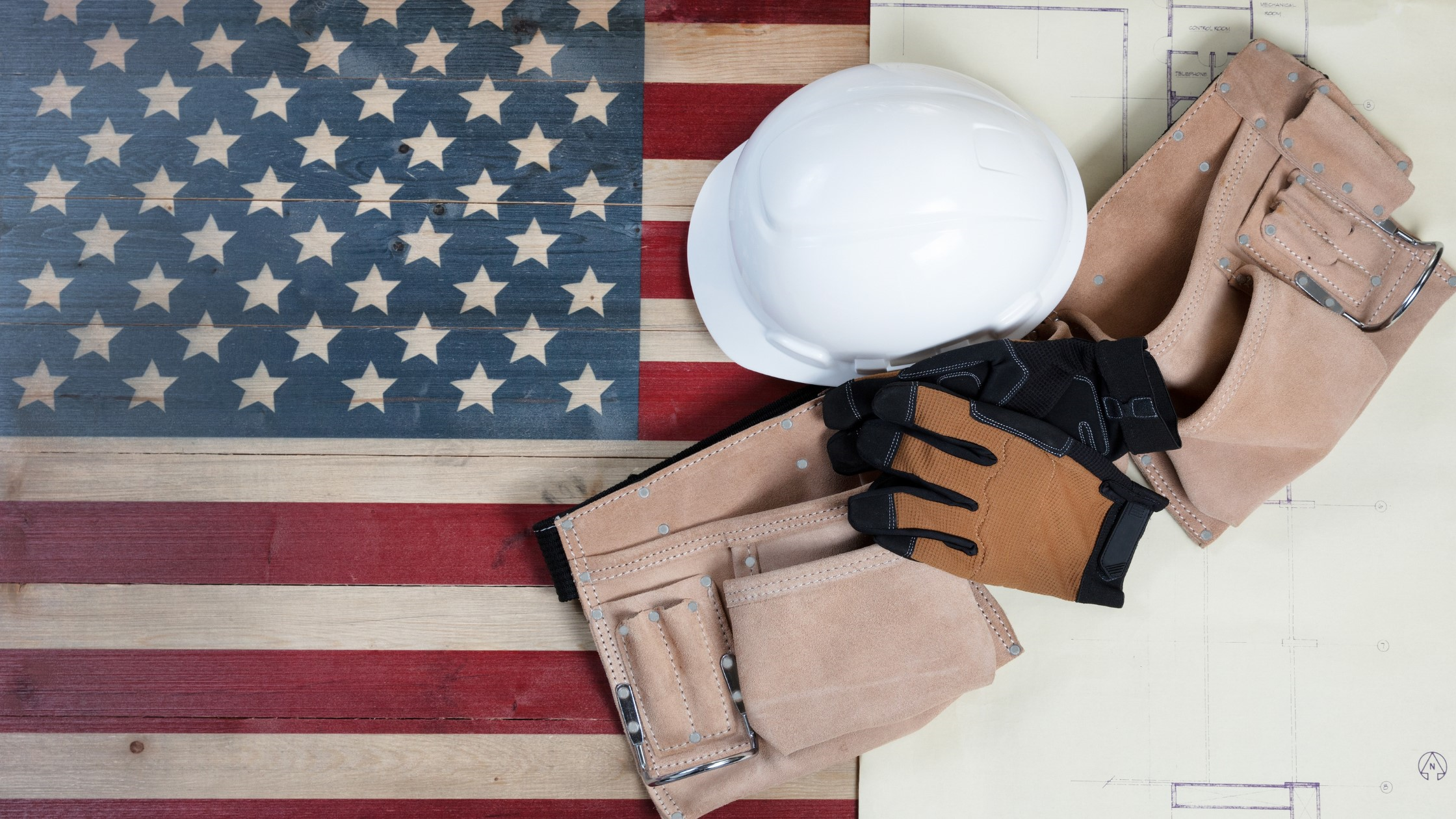In the age of technology, where the allure of white-collar jobs often takes center stage, it's all too easy to overlook the steadfast heroes who keep our nation running smoothly.
The blue-collar workforce, comprising skilled and dedicated individuals working in manufacturing, construction, transportation, and agriculture, is the unsung hero of the United States economy. Now, more than ever, the blue-collar workforce's importance has become glaringly evident. As we navigate through an ever-changing landscape marked by global challenges and technological advances, it is these hands-on workers who remain the backbone of our prosperity, contributing to economic growth, innovation, and national resilience.
At the heart of every burgeoning economy lies a thriving manufacturing sector, the pulse that drives innovation and economic growth. The blue-collar workforce is the powerhouse that ensures the manufacturing wheels keep turning. From assembling automobiles to crafting intricate machinery, the precision and expertise of these workers are unparalleled. Their craftsmanship is woven into the fabric of the nation, transforming raw materials into valuable products that fuel various industries, both domestically and globally.
In an era where international trade and competitiveness are paramount, the role of the blue-collar workforce is more critical than ever. These skilled workers provide a competitive edge by delivering products of exceptional quality and driving down production costs, enabling American businesses to remain viable in a global marketplace.
The construction industry, another integral component of the blue-collar sector, holds the power to shape our environment and lay the foundations for progress. Skilled laborers in construction create the infrastructure that connects us, from roads and bridges to towering skyscrapers. As our population grows and urbanization accelerates, the need for robust construction becomes evident.
Take, for instance, the demand for sustainable and resilient buildings. Blue-collar workers are essential in bringing eco-friendly designs to life, ensuring that the structures we inhabit are energy-efficient and environmentally conscious. Moreover, the recent emphasis on modernizing and upgrading aging infrastructure presents a golden opportunity for the blue-collar workforce to shine. By revitalizing our roads, bridges, and public facilities, these workers not only improve safety and convenience but also inject a surge of economic activity into local communities.
In an age where automation and artificial intelligence are reshaping industries, concerns about job displacement often overshadow the critical role of the blue-collar workforce. However, stated in Forbes, the jobs that will be least impacted by A.I, are manufacturing, healthcare, and blue-collar workers. Many tasks require the human touch, adaptability, and problem-solving skills that blue-collar workers bring.
The COVID-19 pandemic underscored the resilience of the blue-collar sector. While many white-collar jobs seamlessly transitioned to remote work, essential blue-collar workers continued to operate on the frontlines, says the Bureau of Labor Statistics. From healthcare workers and truck drivers to grocery store employees, these individuals proved that the economy's backbone is essential and unbreakable.
Furthermore, as technology advances, the blue-collar sector is evolving alongside it. Many blue-collar jobs now involve working alongside robots and utilizing advanced machinery, demanding a new set of skills that marry the best of human ingenuity with technological prowess.
Skilled Labor Shortages: The United States currently faces a shortage of skilled blue-collar workers. As older generations retire, there is a pressing need to attract and train the next generation of craftsmen, technicians, and tradespeople. These roles offer stable career paths and competitive wages, providing an opportunity to bridge the skills gap and promote upward mobility.
National Infrastructure: The nation's infrastructure is in dire need of repair and modernization. The American Society of Civil Engineers' Infrastructure Report Card consistently highlights the urgent need for investment in roads, bridges, public transit, and other critical areas. The blue-collar workforce is essential in translating these investments into tangible improvements that benefit us all.
Reshoring Manufacturing: The pandemic exposed vulnerabilities in global supply chains, prompting a reevaluation of offshoring practices. As businesses consider reshoring manufacturing operations, the blue-collar sector is poised to play a central role in reinvigorating domestic production and enhancing national self-sufficiency.
Renewable Energy Revolution: The global shift towards renewable energy sources demands a skilled workforce to construct, operate, and maintain solar arrays, wind turbines, and other clean energy infrastructure. Blue-collar workers can power this transition, enabling the United States to lead in sustainable innovation.
Redefining Success: The narrative around success is shifting. While white-collar jobs are undoubtedly prestigious, the blue-collar sector offers fulfilling careers that provide a tangible impact on society. As more individuals recognize the dignity and satisfaction of working with their hands, the industry's allure will only grow stronger.
The blue-collar workforce is the beating heart of the United States economy, driving progress, innovation, and prosperity. As we navigate an era marked by technological transformation, global challenges, and economic uncertainties, their role is more indispensable than ever. From manufacturing and construction to agriculture and beyond, these dedicated individuals are the ones who build, sustain, and uplift our nation.
To secure a brighter future, we must acknowledge the value of the blue-collar sector and invest in its growth. This entails revitalizing our infrastructure, fostering education and training programs, and redefining societal perceptions of success. By recognizing the essential role of the blue-collar workforce, we can pave the way for a thriving, resilient, and inclusive economy that benefits every corner of our nation

About PCI
We believe education has the power to change our lives, our community, and our future.
Address: 11500 N Ambassador Dr Suite 221, Kansas City, MO 64153
Phone Number: (800) 676-7912
Useful Links
News & Updates